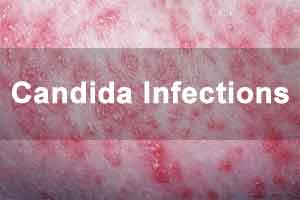- Home
- Editorial
- News
- Practice Guidelines
- Anesthesiology Guidelines
- Cancer Guidelines
- Cardiac Sciences Guidelines
- Critical Care Guidelines
- Dentistry Guidelines
- Dermatology Guidelines
- Diabetes and Endo Guidelines
- Diagnostics Guidelines
- ENT Guidelines
- Featured Practice Guidelines
- Gastroenterology Guidelines
- Geriatrics Guidelines
- Medicine Guidelines
- Nephrology Guidelines
- Neurosciences Guidelines
- Obs and Gynae Guidelines
- Ophthalmology Guidelines
- Orthopaedics Guidelines
- Paediatrics Guidelines
- Psychiatry Guidelines
- Pulmonology Guidelines
- Radiology Guidelines
- Surgery Guidelines
- Urology Guidelines
First Quick Test for Diagnosing Candidiasis without Blood Culture

U.S. Food and Drug Administration FDA has cleared T2Candida Panel, first diagnostic test for candidemia that is quick and doesn’t require culturing a blood sample.UPMC led trial, named DIRECT2 finds the new blood test to perform as well as, if not better than traditional blood cultures at detecting Candidiasis that commonly strikes hospital patients. The results of the trial have been in the journal Clinical Infectious Diseases.
“There are many advantages to quickly diagnosing the specific type of infection a patient has,” said lead author Cornelius J. Clancy, M.D., associate professor of medicine in the University of Pittsburgh's Division of Infectious Diseases, and director of the mycology program. “With an accurate diagnosis, we can start the patient on the correct medication for the type of infection he or she has, which will hopefully allow us to stop the infection before it spreads, but also keep us from giving the patient a drug that won’t work and potentially contributing to drug resistance. For candidemia, we know that the shorter the time to administering an active antifungal medication to a patient, the higher the survival rate. ”
Candidemia is among the four most common bloodstream infections in U.S. hospitals, and Candida are the third most common cause of infections in intensive care units. The mortality rate among patients with candidemia is 40 percent. Blood cultures fail to detect yeast in approximately 50 percent of Candida infections, and typically take two to three days for positive results to be apparent.
The T2Candida Panel involves putting a small vial of blood from the patient into a desktop machine that uses magnetic resonance to scan the blood for the five most common Candida species. Positive or negative results are available within five hours.
From 14 U.S. hospitals, including UPMC, Clancy’s team enrolled 152 patients who had been diagnosed with candidemia through a blood culture. On average, it took nearly two days for the culture to identify that the patient had candidemia, and another day-and-a-half to specify which strain of Candida.
In the trial, the T2Candida test was positive in 89 percent of patients at the time of a positive blood culture for Candida. The T2Candida Panel was significantly more likely to be positive than blood cultures in patients with recent candidemia, in particular those patients who were being treated with antifungal drugs.
While the T2Candida Panel performed well in the trial, Clancy says there were limitations, including the fact that the study didn’t assess whether T2Candida shortens time to starting antifungal treatment or improves patient outcomes.
“Our trial demonstrates that the T2Candida Panel is an important advance in the diagnosis of candidemia,” said Clancy. “The next steps should be evaluating it in direct clinical practice and determining if its use truly speeds up antifungal treatment, cuts unnecessary drug prescribing, results in better patient outcomes and is cost-effective, and identifies large numbers of candidemia cases that are currently not detected by blood cultures.”
T2 Biosystems provided assistance with the study design and compiled data from each institution in a central database. The study authors performed data and statistical analyses and prepared the manuscript without assistance from the company.

Disclaimer: This site is primarily intended for healthcare professionals. Any content/information on this website does not replace the advice of medical and/or health professionals and should not be construed as medical/diagnostic advice/endorsement or prescription. Use of this site is subject to our terms of use, privacy policy, advertisement policy. © 2020 Minerva Medical Treatment Pvt Ltd